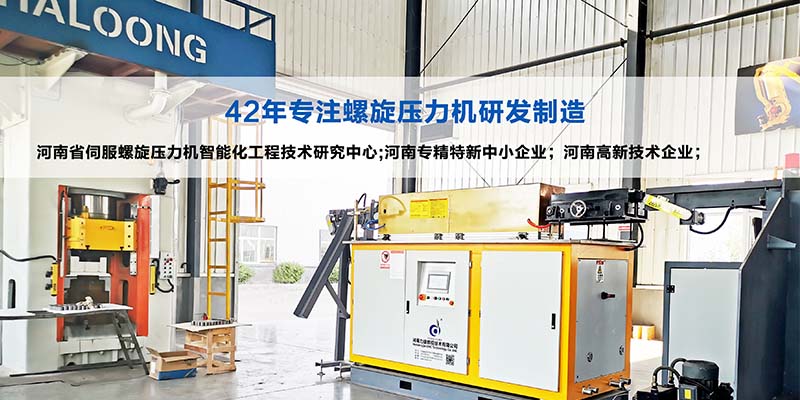Forging servo electric screw press CE certification standards mainly include the following:
First, mechanical structure safety standards:
CE certification has strict requirements for the mechanical structure safety of forging servo electric screw presses. In the design and manufacturing process, the safety of the equipment must be considered, such as the ergonomic design of the operating interface, the stability of the equipment, the safe distance of the moving parts, etc.
The equipment should meet the general standards for mechanical design in the CE certification, such as the design of the press should meet the requirements of EN 10227, EN 10228 and other standards. These standards specify the design principles and test requirements of presses to ensure that the equipment will not be hazardous under normal operating conditions.

Second, electrical safety standards:
The electrical system of the forging servo electric screw press shall comply with CE certified electrical safety standards, such as EN 60204-1. These standards specify the basic requirements of electrical systems, such as grounding of equipment, overload protection, selection and installation of electrical components, etc.
CE certification also puts forward requirements for the safety and reliability of electronic control systems, such as the design of the control circuit should meet the requirements of standards such as EN 61508. These standards specify the safety and reliability requirements for electronic control systems to ensure that the equipment does not suffer from electrical accidents under normal operating conditions.
Third, environmental protection and noise standards:
Forging servo electric screw press may produce noise and exhaust gas during operation, so CE certification also has certain requirements for the environmental protection and noise standards of the equipment.
The equipment shall comply with the environmental and noise standards in the CE certification, such as EN 20871. These standards specify the noise emission and exhaust emission standards of equipment to ensure that equipment does not cause adverse effects on the environment and human health under normal operating conditions.
Iv. Ergonomic standards:
CE certification also puts forward requirements for the ergonomic performance of the operating interface and operating mode of the forging servo electric screw press. The equipment shall comply with the ergonomic standards in the CE certification, such as EN 1050. These standards specify the operation interface design, operation mode, display panel and other information of the equipment to ensure that the operator can complete the work comfortably and safely when using the equipment.
5. Product specifications and marking requirements:
The forging servo electric screw press must be equipped with a product manual and safety mark that meet the requirements, so that the operator can understand the correct use of the equipment and precautions. The product manual shall include the structural characteristics, operation steps, maintenance methods and other contents of the equipment, and shall be expressed in plain language. Safety signs should be clear and clear, including safety warnings, danger warnings and other information.
Vi. Other relevant standards:
The material selection and processing technology of forging servo electric screw press should also meet the requirements of relevant standards. For example, the material of the equipment should meet the mechanical properties requirements, and the processing technology should meet the accuracy requirements.
CE certification may also involve other relevant standards and specifications, such as EU directives, regulations and other technical requirements. These standards and norms are of great significance for the application and review of CE certification, and applicants need to fully understand and meet these requirements.
In summary, the CE certification of forging servo electric screw press involves many aspects of standards and specifications, and the applicant needs to fully understand and meet these requirements in order to obtain the CE certification certificate. At the same time, obtaining the CE certification also means that the equipment meets the relevant regulations and standards of the European Union, and can be legally sold and used in the European market.